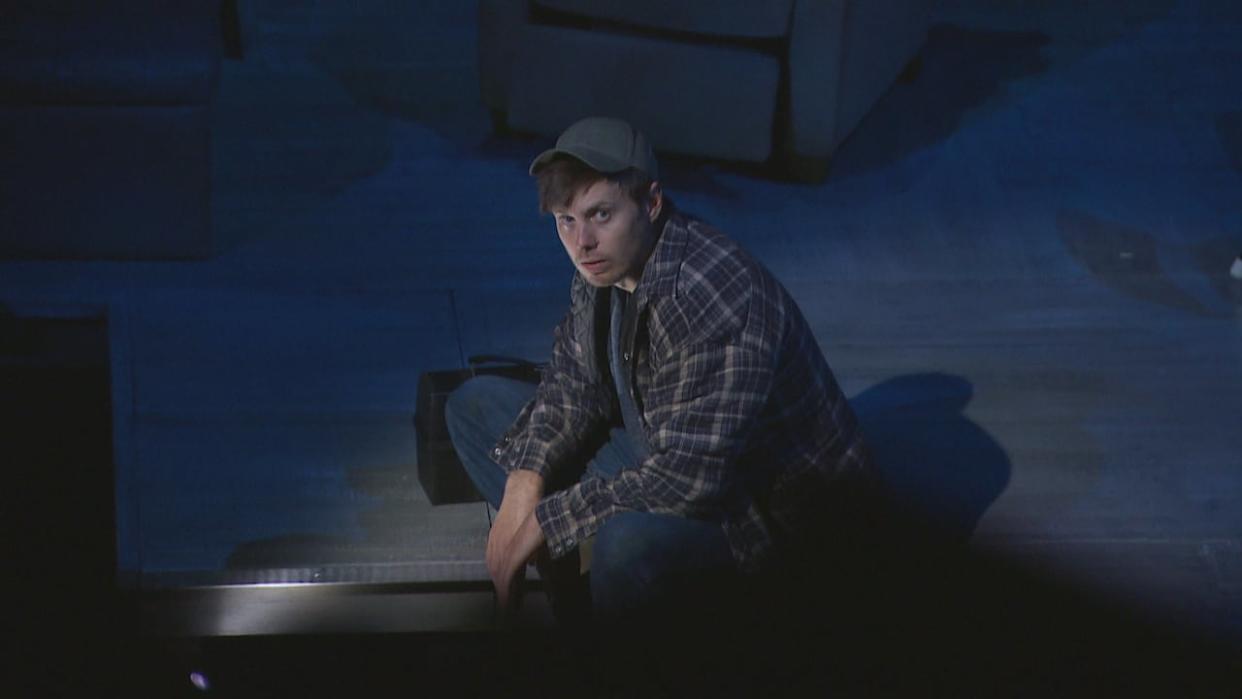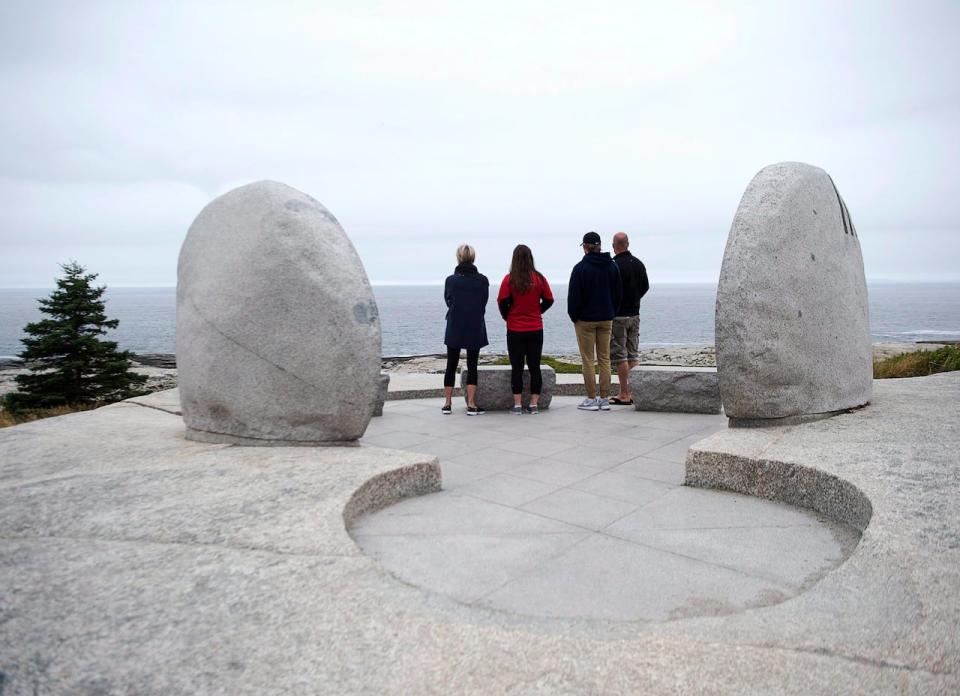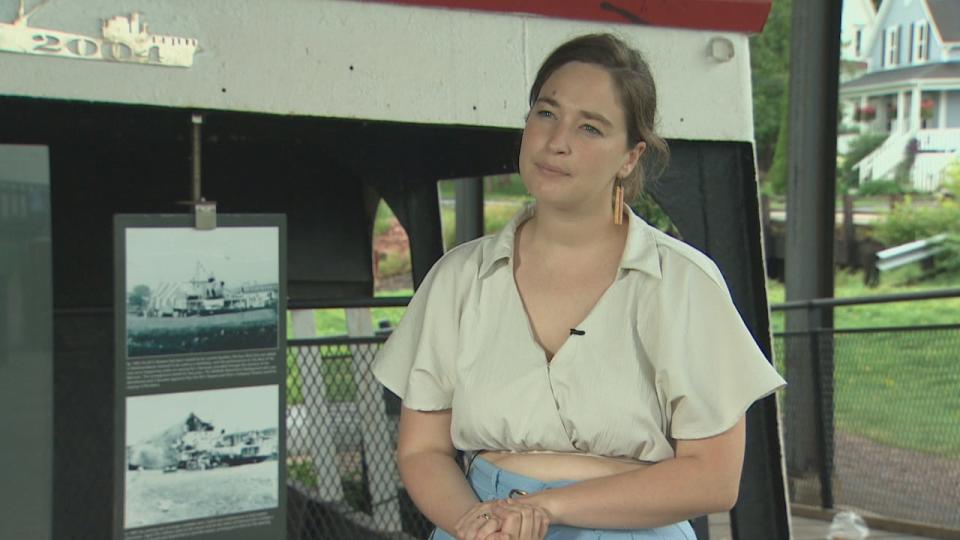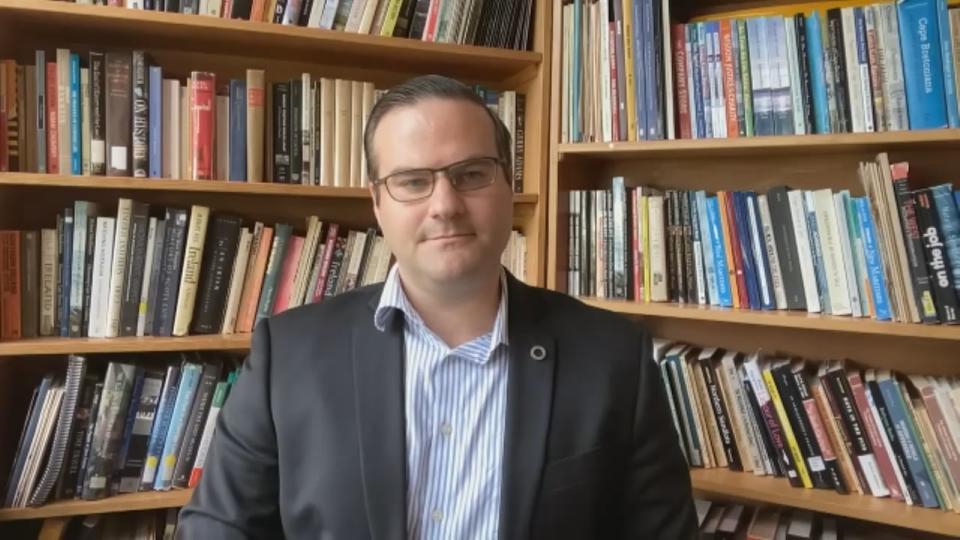How plays and memorials help us process tragedies like Swissair Flight 111

A new play about the crash of Swissair Flight 111 off the coast of Nova Scotia shows a province attempting to make peace with a tragedy that happened 25 years ago, artists and experts say.
Downed Hearts, by playwright Catherine Banks, was inspired by the tragic 1998 crash near Peggys Cove, N.S. It portrays a fisherman who was traumatized by a rescue that quickly became a recovery operation on grim seas following a fictional plane crash.
People will gather Sunday to hold a ceremony at the Swissair Flight 111 Memorial near Peggys Cove honouring the 229 people who died in the crash, and the countless people who took to the dark waters that night to help, only to find horrific scenes of death and damage that stayed with them for years.
Lachlan MacKinnon, an associate professor of history at Cape Breton University, studies public memorials and sees ties between how Nova Scotians mark the crash and remember mining disasters in the province.
"I think it's ultimately about community. And I think when communities experience something together, whether that's something traumatic, as in the story of the Swissair crash, or something celebratory, the natural instinct is to come together and commemorate or memorialize those kinds of stories," he says.
He says remembering the tragic event in a public memorial can help people heal. The Springhill, N.S., memorials to men killed in coal mining disasters in the town have brought the community together to reckon with what happened and plan a way forward, he says.

Visitors look out on the waters as they visit the Swissair memorial at Whalesback near Peggys Cove, N.S., on Sept. 1, 2016. On Sept. 2, 1998, Swissair Flight 111, flying from New York to Zurich, crashed into the Atlantic Ocean near the community. All 229 people on board died. (Andrew Vaughan/The Canadian Press)
MacKinnon compares the Swissair memorial, which overlooks the ocean crash site, to the 1992 Westray mining accident that killed 26 miners.
"You can stand there and see the sight, but the tragedy happened underground. And so is that true for the Swissair event. You're looking over the water and the monument is telling you what happened in this place. And not only telling what happened in this place, but signalling this matters, and still matters, to the people who live there."
Implosions long after the crash
Zach Faye plays Aaron, the fisherman at the centre of Downed Hearts.
"Aaron is one of the fishermen who goes out to respond to an airline disaster that happens just off shore, I think hoping to be part of a rescue operation, but quickly realizing it's not a rescue mission," he says during a break in rehearsals. "The disaster just becomes one thing too much. He sort of implodes."
The play was staged at Ship's Company Theatre in Parrsboro, N.S., with Eastern Front Theatre.
Faye says Aaron's journey mirrors many real-life stories of those who took to the water that dark night. It's his community that helps him begin to heal.
"The love of the island and the people in his life is really the only thing that steers him back. One of the key things we talked about in putting the play together is Aaron isn't OK by the end of the play. He hasn't healed by the end of the play. But he finally reaches a point where he can begin to heal."
For director Samantha Wilson, working on the play changed how she saw things. Her new home along St. Margerets Bay overlooks the accident site, though she didn't know that at first.
"Before when I would look at it I would look at it as a place of fun, a day at the beach, beautiful view. And then as I started to delve into this play, I now think a lot about that night and what people experienced. And it changed my relationship," she says.
"Water, it constantly moves, it's constantly shifting and changing, but to know that that moment happened out there that affected hundreds of lives. I don't think I'll ever look at that water the same."
Lessons in disaster recovery

Laura Vingoe-Cram, the artistic director at Ship's Company Theatre, remembers hearing about the Swissair crash as a child, but only fully faced it while working on the play. (CBC)
Laura Vingoe-Cram, the artistic director at Ship's Company Theatre, says Downed Hearts is a play about "healing and hope and how we recover from major disasters."
She says Banks, the playwright, lives in the fishing community of Sambro, N.S., and knew some of the fishermen involved in the Swissair recovery. Those personal connections led to the play.
Vingoe-Cram was a child when the crash happened. "I just remember the chaos and the impact, and hearing about it in school," she says. "I don't remember it personally, but I remember how it impacted the community more broadly."
She thinks theatre and other art forms can help that broader community process the tragedy, and can help newer members of the community understand what happened.
"It's how we take a historic event and make it present again," she says. "Healing is really about coming together and talking through it, and not suppressing our emotions. I think that was something that happened after Swissair — a lot of people felt they couldn't talk about it. I feel like this play is saying it's important to talk about it."

Lachlan Mackinnon teaches history at Cape Breton University. His research on how people commemorate mining disasters brings insights into how we mark events like the Swissair crash. (CBC)
MacKinnon says healing happens at the crossroads of where trauma interacts with memory and identity. A major milestone like a quarter of a century shows how it still impacts people, he says.
"Communities and individuals memorialize it in many ways. You can put up a commemorative stone, or a monument or a statue, but oftentimes people do simple things like write songs or having gatherings where people talk about those experiences," he says.
"Seeing what people memorialize gives a sense for what those people are telling the world about themselves: this is our experience, this is what we've seen and done, and this is what we'd like to present to everybody about ourselves."
He says the way we mark Swissair after 25 years likely shows the way it will be understood by future generations long after we're gone.
"As time goes by, those stories of those really fundamental events in our lives and in our community lives become part of the fabric of our history, and that's cemented through things like commemoration, like putting up a monument, like attending a commemorative anniversary event. Those moments give us time to collectively reflect on those moments and what they mean to us not only personally, but also for an entire community. And I think that's the case here with the Swissair event."
MORE TOP STORIES


